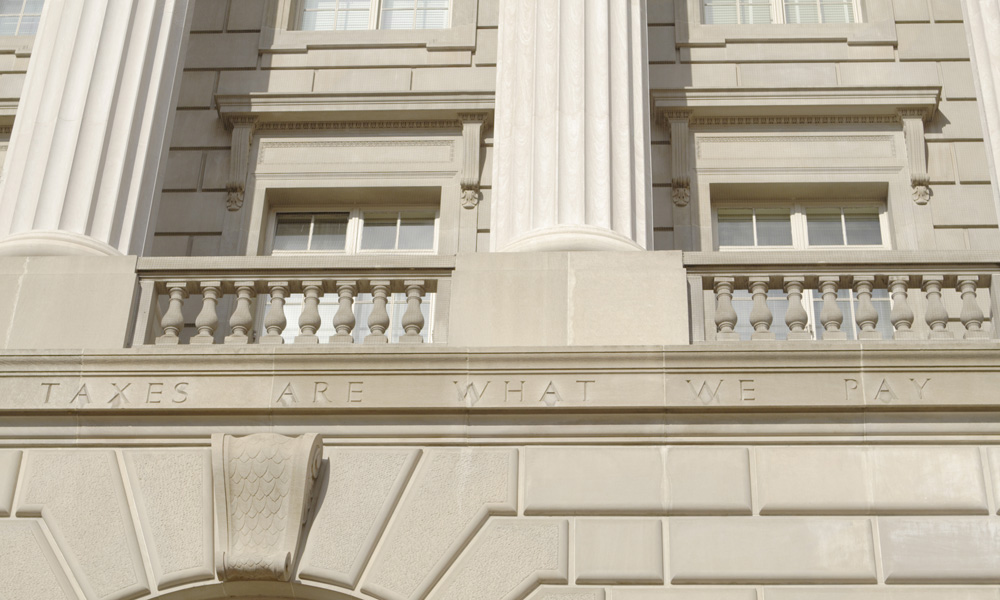
IRS Admits to Improperly Targeting Tea Party Groups
After an admission by an Internal Revenue Service official that the agency had given special scrutiny to applications for tax-exempt status filed by nonprofits with conservative political interests, members of Congress spoke out strongly.
In a disclosure with significant political and nonprofit implications, the Internal Revenue Service announced Friday that people in its office targeted conservative and tea party groups based on their names alone.
The disclosure, which came more than a year after some of those groups began complaining publicly about onerous treatment by the agency, created a political firestorm.
More details:
The situation: In part as a result of the U.S. Supreme Court’s Citizens United ruling, the IRS tax-exempt organizations office in Cincinnati saw a large increase in the number of applications from groups seeking 501(c)4 tax-exempt status between 2010 and 2012. The ruling allowed such groups to engage in unlimited political spending on elections as long as they remained primarily “social welfare” organizations and not political ones. In an effort to handle the volume, the office targeted groups based on their names, especially if they included such terms as “tea party” or “patriot,” the IRS disclosed Friday. As many as 75 groups faced extra inquiries based on their names alone. Lois G. Lerner, who heads the IRS tax-exempt organizations division, apologized on Friday apologized on Friday at an American Bar Association conference but said the moves were not politically motivated.
Strong criticism: Members of Congress were tough on the IRS in the wake of the news, particularly Senate Minority Leader Mitch McConnell (R-KY), who said an apology was not enough. “Today, I call on the White House to conduct a transparent, government-wide review aimed at assuring the American people that these thuggish practices are not underway at the IRS or elsewhere in the administration against anyone, regardless of their political views,” he said in a press release. On Sunday, Rep. Darrell Issa (R-CA) raised questions about the apology’s timing, coming before the expected release this week of an inspector general’s report into the matter. That report was requested by the House Oversight Committee, which Issa chairs.
Further developments: On Monday, The New York Times reported (based on a leak of the inspector general’s audit) that in July 2011, the IRS broadened its approval approach to include groups whose policy issues regarded government spending, taxes, and criticisms of how the government is being run—and that Lerner was aware of the scrutiny being given to tea party groups. In January 2012, the focus was broadened again to groups with political stances affecting both parties. But after news stories surfaced suggesting that tea party applicants were being harassed by the IRS, Lerner told the agency’s Cincinnati office to stop asking the organizations for additional information, The Times reported. (ABC News also acquired and released a copy of the IG audit on Monday.)
How groups reacted: The American Center for Law and Justice, a public-interest law firm that represents 27 conservative groups, spoke out on the IRS disclosure, particularly its timing. “It took the threat of legal action to get the IRS to make this admission. And while many of the organizations we represent have finally been granted tax-exempt status, we demand the IRS immediately approve the pending applications for the remainder of our clients,” Jay Sekulow, the ACLJ chief counsel, said in a press release.
So what does this mean for nonprofits at large? Campaign-finance expert Richard Hasen of the University of California, Irvine, suggested that the revelation could prove damaging for efforts to crack down on abuse by political groups in the nonprofit sector.
“At the very least, it’s a distraction for the IRS,” Hasen told USA Today. “At the most, it will significantly dampen efforts to rein in shadowy [groups].”
(iStockphoto/Thinkstock)






Comments